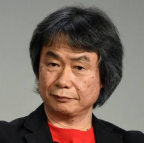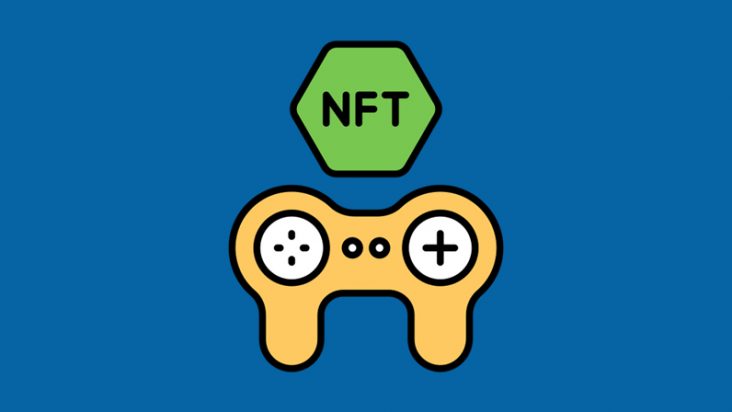
A pantheon of legendary creators and institutions is spread out on the grandiose pixel tapestry of the game world, where knights and ninjas communicate with racers and football stars with their elbows. These are the inspirations and forces behind the most cherished digital dreams of joystick jockeys. With over 2.7 billion gamers worldwide, which is comparable to the population of a virtual megastrane, the universal appeal of video games is undeniable. This is an area where the laws of physics are just assumptions, and the only limit on what you can achieve is the speed of your Wi-Fi connection. In this bizarre gaming wonderland, where finding a princess in another castle is more common than longing on Mondays, we take our hats off to the best game developers and game development companies of all time.
| Rank | Name | Age | Education | Years Active | Company | Games |
|---|---|---|---|---|---|---|
| 1 |  | 71 | Kanazawa Municipal College of Industrial Arts | 43 | Nintendo | Donkey Kong, Mario, The Legend of Zelda, Pikmin |
| 2 |  Hideo Kojima Hideo Kojima | 60 | Osaka University | 38 | Kojima Productions | Metal Gear, Zone of the Enders, |
| 3 |  | 70 | University of Michigan (BA) | 43 | Firaxis Games, 2K Games | Civilization, Sid Meier's Railroad Tycoon |
| 4 |  | 53 | University of Missouri–Kansas City | 34 | Keen Technologies | Commander Keen, Wolfenstein 3D, Doom, Quake, Rage |
| 5 |  | 56 | University of California, Berkeley | 35 | Double Fine | Broken Age, Psychonauts, Grim Fandango, The Secret of Monkey Island, Day of the Tentacle |
| 6 |  | 57 | Vassar College | 29 | Ghost Story Games | BioShock, Freedom Force,System Shock, 2 Thief: The Dark Project |
| 7 |  Gabe Newell Gabe Newell | 61 | Harvard University | 28 | Valve Corporation | Half-Life, Gabe Newell Simulator, Portal 2, Left 4 Dead and Counter-Strike |
| 8 |  Will Wright Will Wright | 64 | Louisiana State University, Louisiana Tech, The New School | 40 | Maxis | Raid on Bungeling Bay, The Sims, Spore |
| 9 |  | 53 | College of William & Mary in Williamsburg, Virginia | 30 | Bethesda Game Studios | The Elder Scrolls, Fallout, The Terminator: Future Shock |
| 10 |  | 45 | Florida State University, Carnegie Mellon University | 21 | Naughty Dog | Uncharted, The Last of Us |
This article presents the most famous best video game developers, familiar to more than one generation. We all know their projects, but not many people know these geniuses of the gaming industry by sight.
Best Video Game Developers
Shigeru Miyamoto: The Father of Modern Video Gaming

Shigeru Miyamoto’s journey began at Nintendo in the late 1970s, where he was initially hired as an artist. His first major project, “Donkey Kong,” was a turning point for Nintendo and the industry at large. Faced with the task of creating a game to replace a failed product, Miyamoto crafted a narrative-driven game featuring a character named Jumpman (later known as Mario), introducing storytelling to arcade gaming. Despite initial skepticism, “Donkey Kong” became a colossal success, laying the groundwork for Miyamoto’s future endeavors.
Miyamoto’s philosophy centered around creating games that were accessible and enjoyable for all ages, a novel concept at the time. His subsequent creations, including “Super Mario Bros.” and “The Legend of Zelda,” were developed with a focus on exploration, fun, and a deep sense of wonder. Miyamoto faced challenges, such as technological limitations and the pressure to continuously innovate, but his commitment to his vision led to the creation of some of the most influential games in history.
Hideo Kojima: The Cinematic Visionary

Hideo Kojima’s entry into the gaming industry was driven by his passion for storytelling, particularly through the lens of cinema. Joining Konami in the mid-1980s, Kojima’s first major project was “Metal Gear” a game that introduced stealth mechanics and a narrative depth uncommon in games of that era. Kojima’s approach to game design, often described as cinematic, set a new standard for how stories could be told in the medium.
The development of the “Metal Gear” series, particularly “Metal Gear Solid” for the PlayStation, showcased Kojima’s flair for complex narratives and character development. However, Kojima’s storytelling ambitions sometimes led to conflicts with the technical and commercial realities of game development, leading to a well-publicized departure from Konami. Despite these challenges, Kojima’s establishment of Kojima Productions and the release of “Death Stranding” solidified his reputation as a master storyteller, unafraid to push boundaries.
Sid Meier: The Strategist Behind Civilization

Sid Meier’s career in game development took off in the early 1980s, co-founding MicroProse with Bill Stealey. Meier’s first notable success was “Sid Meier’s Pirates!” a game that combined adventure, strategy, and simulation in a way that was unprecedented at the time. However, it was the release of “Sid Meier’s Civilization” in 1991 that cemented his status as a legend in the strategy game genre.
Developing “Civilization” was a colossal undertaking, requiring Meier to balance complexity with accessibility. The game allowed players to guide a civilization from the Stone Age to the modern era, a concept that was both ambitious and risky. Despite facing challenges such as the game’s daunting scope and the need for meticulous balancing, “Civilization” became a massive success, spawning a series that remains a staple in the strategy genre.
John Carmack: The Technological Innovator of Doom

John Carmack’s foray into game development began with his fascination with computer programming and a desire to push the boundaries of what was possible in video games. Co-founding id Software with John Romero and others, Carmack’s technical prowess was instrumental in the creation of “Wolfenstein 3D,” a game that laid the foundation for first-person shooters. However, it was “Doom,” released in 1993, that truly revolutionized the industry.
Carmack’s development of “Doom” involved creating a game engine that allowed for real-time 3D rendering, a groundbreaking achievement at the time. The game’s fast-paced action, networked multiplayer, and modifiable content were revolutionary, setting new standards for the genre and the industry. Carmack faced technical challenges, pushing the limits of existing hardware, and legal battles over intellectual property, but his innovations in game engine development have had a lasting impact on gaming.
Tim Schafer: The Quirky Storyteller

Tim Schafer’s career began at LucasArts, where he quickly made a name for himself with his work on “The Secret of Monkey Island” series. Schafer’s distinctive sense of humor and penchant for quirky, engaging narratives became his trademark. In 1995, Schafer released “Full Throttle,” a game that further showcased his ability to blend humor with compelling storytelling.
Facing the adventure genre’s decline in the late 1990s, Schafer founded Double Fine Productions, where he continued to innovate with titles like “Psychonauts” and “Brütal Legend.” Schafer’s journey was fraught with financial challenges and the risks of independent game development, but his dedication to unique, narrative-driven games has earned him a devoted following and critical acclaim.
Ken Levine: The Deep Diver

Ken Levine’s career in game development began at Looking Glass Studios, where he contributed to the critically acclaimed “Thief” series. However, it was his work as the creative lead on “BioShock” that truly showcased Levine’s talents. “BioShock” was praised for its immersive storytelling, complex characters, and philosophical underpinnings, setting a new standard for narrative depth in first-person shooters.
Levine’s commitment to story-rich environments and moral complexity often required balancing ambitious narrative goals with gameplay mechanics, a challenge that sometimes led to difficult development processes. Despite these challenges, Levine’s work on “BioShock Infinite” further solidified his reputation as a developer capable of weaving intricate narratives within engaging gameplay frameworks.
Gabe Newell: The Architect of Valve and Steam

Gabe Newell’s journey into the gaming industry was unconventional. After dropping out of Harvard University, Newell spent thirteen years at Microsoft, where he contributed to the early Windows operating systems. However, his passion for gaming led him to co-found Valve Corporation in 1996 with Mike Harrington. Valve’s first project, “Half-Life,” released in 1998, was a groundbreaking first-person shooter known for its immersive storytelling and innovative gameplay. Developing “Half-Life” was a risk, as Newell invested millions of his own funds into the project, betting on the game’s success.
The gamble paid off, and “Half-Life” received critical acclaim, setting the stage for Valve’s future successes. However, Newell faced significant challenges, particularly in the realm of digital distribution. The launch of Steam in 2003 was met with skepticism and resistance from both players and developers. Yet, Newell’s vision for a unified platform for game distribution and community engagement eventually revolutionized the industry, making Steam the leading digital distribution platform for PC gaming.
Will Wright: The Creator of Simulated Lives

Will Wright’s fascination with the architecture and design of living spaces led him to the world of game development. His first major success, “SimCity” in 1989, allowed players to design and manage their own cities, introducing the concept of “software toys” — games without specific goals or objectives. Despite its innovative gameplay, “SimCity” faced initial rejections from publishers who doubted its commercial viability. Wright’s persistence paid off when “SimCity” became a hit, leading to the founding of Maxis, Wright’s game development company.
Wright’s most famous creation, “The Sims,” launched in 2000, further expanded on his interest in simulation and sandbox-style gameplay. “The Sims” allowed players to control the daily lives of virtual people, becoming one of the best-selling PC games of all time. The development of “The Sims” was not without its challenges, including skepticism from Electronic Arts (EA), Maxis’s parent company, regarding the game’s appeal. Wright’s dedication to his vision for “The Sims” led to a franchise that has remained popular for decades.
Todd Howard: The Visionary Behind Epic RPGs

Todd Howard’s career at Bethesda Game Studios began in 1994, and he quickly rose through the ranks to become the director and executive producer. Howard’s first project as project leader, “The Elder Scrolls III: Morrowind,” was a critical moment for both Howard and Bethesda. The game’s development was fraught with risks, as it was an ambitious open-world RPG developed during a tumultuous time for the company. Howard’s leadership and vision for “Morrowind” not only saved Bethesda from financial trouble but also set the standard for modern open-world RPGs.
Howard’s subsequent projects, including “The Elder Scrolls IV: Oblivion,” “Fallout 3,” and “The Elder Scrolls V: Skyrim,” have continued to define the RPG genre, known for their vast open worlds, deep lore, and player freedom. However, Howard and his team have faced challenges, including technical issues and the immense pressure to meet the high expectations set by their previous successes. Despite this, Howard’s games have consistently pushed the boundaries of what is possible in video games, earning him a place among the industry’s most influential figures
Neil Druckmann: Crafting Deep, Narrative-Driven Experiences

Neil Druckmann’s journey in the gaming industry began when he joined Naughty Dog, initially working as an intern while completing his education. His first significant project was “Uncharted 2: Among Thieves,” where he served as a gameplay programmer before moving into more narrative-focused roles. Druckmann’s passion for storytelling, influenced by his love for comics and films, led him to become the creative force behind “The Last of Us,” a game acclaimed for its deep narrative and complex characters.
Developing “The Last of Us” presented numerous challenges, including creating a believable post-apocalyptic world and developing AI that could adapt to the player’s actions. Druckmann’s commitment to storytelling and character development pushed the team to innovate, resulting in a game that redefined narrative in video games. Despite facing the pressure of high expectations and the technical challenges of game development, Druckmann’s work on “The Last of Us” and its sequel has cemented his reputation as a master storyteller in the gaming world.
Amy Hennig: Pioneering Cinematic Storytelling in Games

Amy Hennig’s career in video games began in the late 1980s, but it was her role as the creative director and writer for the “Uncharted” series that brought her widespread acclaim. Hennig’s background in film and her passion for adventure stories influenced her approach to game design, focusing on blending cinematic storytelling with engaging gameplay. Her work on “Uncharted: Drake’s Fortune” set a new standard for narrative-driven action games, combining thrilling action sequences with a compelling story.
The development of the “Uncharted” series was not without its hurdles. Balancing the cinematic elements with gameplay, ensuring the story remained coherent and engaging, and pushing the PlayStation hardware to its limits were significant challenges. Hennig’s leadership and vision were instrumental in overcoming these obstacles, resulting in a series that has been both critically acclaimed and commercially successful. Her contributions to the industry have paved the way for more narrative-focused games and have inspired countless developers.
Edmund McMillen: An Indie Game Icon

Edmund McMillen’s entry into the world of game development was marked by his distinctive art style and a penchant for exploring dark, personal themes. McMillen’s career began with smaller Flash games, but it was “Super Meat Boy” and “The Binding of Isaac” that truly put him on the map. These games, developed with minimal budgets and teams, stood out for their challenging gameplay, unique art, and deeply personal storytelling.
The development of “The Binding of Isaac,” in particular, was a gamble due to its controversial themes and unconventional gameplay. McMillen faced the challenge of self-publishing and marketing the game, as well as dealing with the uncertainties of the indie game market. However, the game’s success proved that there was a significant audience for unique, artistically driven indie games. McMillen’s journey from a solo developer creating Flash games to a key figure in the indie game movement is a testament to his creativity, perseverance, and willingness to take risks.
Jonathan Blow: The Philosopher-Designer

Jonathan Blow’s career in game development is a testament to the power of introspection and philosophical inquiry. Blow’s first major success, “Braid,” released in 2008, was a puzzle-platformer that played with time manipulation mechanics in a way that hadn’t been seen before. However, Blow’s journey began long before “Braid.” He started in the late ’90s, working on various projects and games that, while not achieving significant commercial success, laid the foundation for his future work.
“Braid” was developed over several years, with Blow pouring his personal savings into the project to maintain creative control. The game’s unique mechanics, coupled with its narrative depth and visual style, resonated with players and critics alike, catapulting Blow into the spotlight. Yet, success was not without its challenges. Blow faced criticism for “Braid’s” perceived pretentiousness and the pressure to follow up on its success. His next project, “The Witness,” a meticulously designed open-world puzzle game, was a response to these challenges, further solidifying Blow’s reputation as a developer who pushes the boundaries of the medium.
Derek Yu: The Indie Game Evangelist

Derek Yu’s journey in the game development world is a story of community, collaboration, and the indie spirit. Yu’s breakout game, “Spelunky,” started as a free-to-play title released in 2008, inspired by classic platformers and roguelike elements. However, Yu’s involvement in game development began much earlier, with his participation in the indie game community and contributions to various projects and forums.
“Spelunky” was acclaimed for its challenging gameplay, procedural level generation, and deep, emergent mechanics. The game’s success was not just a win for Yu but also a significant moment for the indie game movement, showcasing the potential of small-scale projects to make a big impact. Despite the challenges of independent game development, including financial constraints and the uncertainty of solo projects, Yu’s work on “Spelunky” and his dedication to the indie community have inspired countless developers.
Jenova Chen: The Artisan of Emotion

Jenova Chen’s career is marked by a commitment to exploring the emotional and artistic potential of video games. Chen co-founded Thatgamecompany, and their third title, “Journey,” released in 2012, became an instant classic. Chen’s foray into game development began at the University of Southern California, where he created “Cloud” and “flOw,” games that focused on emotion and simplicity over traditional gameplay mechanics.
“Journey” was a culmination of Chen’s vision for games that evoke deep emotional responses, featuring a minimalist design, wordless narrative, and innovative multiplayer component. Developing “Journey” was a risk, with Chen and his team facing financial pressures and the challenge of creating a commercially viable game that defied conventional genres. However, “Journey’s” critical and commercial success proved the viability of games as a medium for profound emotional experiences, earning Chen a place among the most innovative game developers of his generation.
Best Game Development Companies
Nintendo: The Architect of Nostalgia

- Founded in: 1889 (entered the video game industry in the 1970s)
- Location: Kyoto, Japan
- Employees: Approximately 6,200
- Specialization: Family-friendly gaming experiences, innovative hardware, and beloved franchises
- Successful Projects: The Super Mario series, The Legend of Zelda series, Pokémon series
Emerging from the quaint beginnings of a playing card company, Nintendo redefined itself through a foray into video gaming, introducing the world to characters and stories that have become cultural touchstones. The company’s specialization in creating accessible, family-friendly content, combined with a penchant for hardware innovation like the Wii and Switch, underscores a philosophy centered on broadening the gaming demographic. Unlike its counterparts, Nintendo’s approach is deeply rooted in creating enduring franchises that appeal across generations, fostering a unique blend of nostalgia and innovation.
Valve Corporation: The Digital Vanguard

- Founded in: 1996
- Location: Bellevue, Washington, USA
- Employees: Approximately 360
- Specialization: PC gaming, digital distribution, community-centric platforms
- Successful Projects: The Half-Life series, Portal series, Dota 2
Valve Corporation, conceived by Gabe Newell and Mike Harrington in the wake of their Microsoft tenure, has transcended its game development origins to revolutionize digital distribution through Steam. Valve’s pioneering of the Steam platform not only democratized access to games but also empowered indie developers, fostering a vibrant ecosystem centered around community feedback and modding. Valve’s distinct approach lies in its commitment to an open and participatory platform, diverging from traditional models by nurturing a community-driven environment that has become the backbone of PC gaming.
Rockstar Games: The Narrators of the Edges

- Founded in: 1998
- Location: New York City, New York, USA
- Employees: Approximately 2,000 (across multiple studios)
- Specialization: Mature narrative-driven games, open-world experiences
- Successful Projects: Grand Theft Auto series, Red Dead Redemption series
Rockstar Games, under the aegis of Take-Two Interactive, has carved its niche through a tapestry of games that blend deep narratives with expansive open worlds. Known for the Grand Theft Auto and Red Dead Redemption series, Rockstar’s titles are distinguished by their mature themes, complex characters, and cinematic storytelling. The company’s approach, marked by meticulous detail and an ambition to push the boundaries of the medium, focuses on immersive experiences that challenge societal norms, setting Rockstar apart as a developer unafraid to explore the darker corners of narrative and gameplay.
Electronic Arts (EA): The Sports Gaming Titan

- Founded in: 1982
- Location: Redwood City, California, USA
- Employees: Approximately 9,800
- Specialization: Sports simulations, diverse gaming genres, digital distribution
- Successful Projects: FIFA series, Madden NFL series, The Sims series, Battlefield series
Electronic Arts, often abbreviated as EA, has firmly established itself as a leader in the realm of sports simulations with its EA Sports label, home to the immensely popular FIFA and Madden NFL franchises. Beyond sports, EA’s repertoire spans a wide array of genres, from the life simulation series The Sims to the action-packed Battlefield series. EA differentiates itself with a strong emphasis on franchise development, ensuring annual updates to its sports titles, which keeps fans engaged and eagerly anticipating the next iteration. Additionally, EA has embraced the digital age with open arms, pioneering digital game distribution and subscription services like EA Play, which offers gamers access to a vast library of EA’s titles, setting a standard in the gaming industry for how companies can evolve with technology and consumer habits.
Activision Blizzard: The Blockbuster Behemoth

- Founded in: 2008 (from the merger of Activision and Vivendi Games)
- Location: Santa Monica, California, USA
- Employees: Approximately 9,500
- Specialization: First-person shooters, MMORPGs, esports
- Successful Projects: Call of Duty series, World of Warcraft, Overwatch
Activision Blizzard emerged from the fusion of Activision, a pioneer in game publishing, and Vivendi Games, bringing under its wing the legendary Blizzard Entertainment, known for World of Warcraft. This powerhouse is revered for producing blockbuster hits that not only achieve commercial success but also cultivate dedicated communities, particularly evident in the esports realms of Overwatch and the Call of Duty leagues. Activision Blizzard’s approach is characterized by creating expansive, immersive worlds and competitive arenas that cater to both casual gamers and esports athletes alike. The company’s success lies in its ability to maintain high-quality content across its franchises and adapt to the evolving landscape of online multiplayer and competitive gaming, setting the bar for what it means to build and sustain global gaming communities.
Ubisoft: The Master of Open Worlds

- Founded in: 1986
- Location: Montreuil, France
- Employees: Approximately 18,000
- Specialization: Open-world adventures, action-adventure games
- Successful Projects: Assassin’s Creed series, Far Cry series, Tom Clancy’s series
Ubisoft stands out in the gaming industry for its expansive, open-world games that offer players unparalleled freedom to explore diverse and richly detailed environments. With flagship series like Assassin’s Creed and Far Cry, Ubisoft has mastered the art of blending historical fiction with engaging gameplay, creating immersive experiences that transport players across time and space. Unlike other game developers, Ubisoft’s strength lies in its global network of studios, which collaborates to push the boundaries of what open-world gaming can be. This collaborative approach, coupled with a commitment to narrative depth and player-driven stories, ensures that Ubisoft’s games are not just played but experienced, making the company a beacon of innovation in creating worlds without boundaries.
Bethesda Softworks: The World Builders of Gaming

- Founded in: 1986
- Location: Rockville, Maryland, USA
- Employees: Approximately 400
- Specialization: Immersive open-world RPGs, action-adventure games
- Successful Projects: The Elder Scrolls series, Fallout series
- Bethesda Softworks has carved a niche for itself as a creator of vast, open-world RPGs that offer players unparalleled freedom to explore and shape their adventures. Renowned for the Elder Scrolls and Fallout series, Bethesda’s games are characterized by their rich storytelling, complex worlds, and deep lore. The company’s approach to game development emphasizes player choice and extensive modding capabilities, allowing for a highly personalized gaming experience. This dedication to creating immersive worlds distinguishes Bethesda in the industry, making it a leader in open-world game development.
Square Enix: The Maestros of Role-Playing Games

- Founded in: 2003 (merger of Square and Enix)
- Location: Tokyo, Japan
- Employees: Approximately 4,800
- Specialization: JRPGs, action-adventure games
- Successful Projects: Final Fantasy series, Dragon Quest series, Kingdom Hearts series
- Born from the merger of two gaming powerhouses, Square Enix has risen to prominence through its iconic JRPG franchises such as Final Fantasy and Dragon Quest. The company’s games are known for their intricate plots, memorable characters, and innovative gameplay mechanics. Square Enix has a unique approach to storytelling, often blending fantasy with science fiction and intricate character development, setting a high standard for narrative depth in gaming. Its commitment to pushing the boundaries of the JRPG genre, along with its forays into manga, anime, and film, showcase Square Enix’s multifaceted approach to entertainment, making it a revered name in gaming and beyond.
CD Projekt: The Storytellers of the Digital Age

- Founded in: 1994
- Location: Warsaw, Poland
- Employees: Approximately 1,100
- Specialization: Narrative-driven open-world RPGs
- Successful Projects: The Witcher series, Cyberpunk 2077
- CD Projekt, the Polish powerhouse behind The Witcher series, has gained international acclaim for its focus on narrative depth, complex characters, and moral ambiguity. The company’s approach to game development is centered on delivering mature, story-driven content that challenges players to make decisions with significant consequences. CD Projekt’s commitment to quality and player satisfaction is evident in its expansive, content-rich games and its stance against DRM. This player-first philosophy, combined with the company’s ability to craft compelling narratives, sets CD Projekt apart as a developer that prioritizes immersive storytelling and ethical gaming experiences.
Supercell: The Titans of Mobile Gaming

- Founded in: 2010
- Location: Helsinki, Finland
- Employees: Approximately 320
- Specialization: Mobile strategy and casual games
- Successful Projects: Clash of Clans, Clash Royale, Brawl Stars
- Supercell has risen to prominence in the mobile gaming sector with its strategy-based games that emphasize social interaction and competitive play. Known for global hits like Clash of Clans and Clash Royale, Supercell’s approach to game development is unique, focusing on a “cell” structure where small teams operate like independent entities, fostering creativity and innovation. This methodology allows for rapid development and testing, ensuring that only the most engaging and polished games reach the market. Supercell’s success lies in its ability to create games that are not only accessible but also deeply engaging, encouraging community building and competitive play on a global scale.
Naughty Dog: The Crafters of Cinematic Masterpieces

- Founded in: 1984
- Location: Santa Monica, California, USA
- Employees: Approximately 400
- Specialization: Narrative-driven action-adventure games
- Successful Projects: Uncharted series, The Last of Us series
- Naughty Dog has carved a niche for itself in the gaming industry with its highly cinematic and story-driven action-adventure games. With critically acclaimed series like Uncharted and The Last of Us, Naughty Dog’s games are characterized by their rich narratives, deep character development, and high production values. The studio’s approach to game development places a strong emphasis on storytelling, aiming to deliver a cinematic experience that rivals Hollywood blockbusters. This commitment to narrative excellence and character-driven stories sets Naughty Dog apart, making it a standard-bearer for storytelling in video games.
Bungie: The Pioneers of Shared-World Shooters

- Founded in: 1991
- Location: Bellevue, Washington, USA
- Employees: Approximately 800
- Specialization: First-person shooters, shared-world experiences
- Successful Projects: Halo series (former), Destiny series
- Bungie, the original creator of the Halo series and now the developer behind the Destiny franchise, is known for its innovative approach to first-person shooters, particularly in creating shared-world experiences. Bungie’s games combine engaging solo play with expansive multiplayer environments, blurring the lines between different modes of play. The company’s focus on community and player engagement is evident in the Destiny series, which offers a constantly evolving universe shaped by player actions and choices. This emphasis on creating a dynamic, player-driven world distinguishes Bungie’s approach to game development, setting new standards for interactivity and community involvement in the FPS genre.
FromSoftware: The Harbingers of Challenge

- Founded in: 1986
- Location: Tokyo, Japan
- Employees: Approximately 320
- Specialization: Action RPGs, challenging gameplay
- Successful Projects: Dark Souls series, Bloodborne, Sekiro: Shadows Die Twice
- FromSoftware has etched its name in the annals of gaming history with its notoriously challenging yet deeply rewarding action RPGs. Renowned for the Dark Souls series, Bloodborne, and Sekiro, the company’s games are characterized by their steep learning curves, intricate level design, and rich lore. FromSoftware’s approach to game development diverges from the norm by refusing to dilute the difficulty of its games, instead inviting players to embrace failure as a path to mastery. This philosophy has fostered a dedicated fan base and has influenced a new genre of games known as “Soulslike,” highlighting FromSoftware’s impact on game design and difficulty standards.
Epic Games: The Innovators of Interaction

- Founded in: 1991
- Location: Cary, North Carolina, USA
- Employees: Approximately 1,000
- Specialization: Battle royale games, game engines
- Successful Projects: Fortnite, Unreal Tournament series, Unreal Engine
- Epic Games, the creator of the cultural phenomenon Fortnite and the groundbreaking Unreal Engine, stands at the forefront of interactive and social gaming. Epic’s Fortnite transcended the battle royale genre by evolving into a virtual space for concerts, social gatherings, and brand collaborations, redefining what a game can encompass. The company’s Unreal Engine has become a cornerstone in the industry, offering cutting-edge tools for developers across gaming and film. Epic Games’ approach is defined by its push for cross-platform play and its advocacy for a more open and connected gaming ecosystem, challenging traditional industry boundaries and fostering a more inclusive gaming community.
Capcom: The Masters of Horror and Combat

- Founded in: 1979
- Location: Osaka, Japan
- Employees: Approximately 3,000
- Specialization: Action-adventure games, fighting games, survival horror games
- Successful Projects: Resident Evil series, Street Fighter series, Monster Hunter series
- Capcom has solidified its status in the gaming world with iconic franchises like Resident Evil, Street Fighter, and Monster Hunter. The company is revered for its mastery in creating intense survival horror experiences and deeply engaging fighting games. Capcom’s approach to game development is characterized by its ability to continually reinvent and revitalize its long-standing franchises, as seen in the critically acclaimed Resident Evil remakes and the evolving Monster Hunter saga. This knack for innovation within its established series ensures that Capcom’s games remain relevant and beloved in an industry that is constantly chasing new trends.
What metrics are used to select the best gaming companies?
In the realm of video game development, the criteria for identifying the industry’s leading lights are as diverse and complex as the games themselves. Several key metrics are instrumental in distinguishing the best companies, each shedding light on different facets of success within this dynamic field.
Innovation and Creativity: A core metric, innovation is exemplified by Nintendo’s enduring legacy of reinventing gaming experiences with each new console and game, from the motion-controlled Wii to the versatile Switch. Valve Corporation, with its Steam platform, revolutionized the distribution of games, while Rockstar Games continually pushes the boundaries of open-world storytelling with titles like “Grand Theft Auto V” and “Red Dead Redemption 2”.
Financial Performance: Robust sales and profitability underscore a company’s market dominance. Electronic Arts (EA) showcases its financial acumen with consistent high earnings from franchises like “FIFA” and “Madden NFL”. Similarly, Activision Blizzard’s “Call of Duty” series and “World of Warcraft” have contributed to the company’s strong financial footprint.
Critical Acclaim and Awards: Accolades from industry peers highlight a company’s artistic and technical achievements. Ubisoft’s “Assassin’s Creed” series has received numerous awards for its historical accuracy, immersive worlds, and innovative gameplay. Square Enix’s “Final Fantasy” series, known for its storytelling and visual excellence, has garnered critical acclaim and a dedicated fanbase.
Player Engagement and Community Feedback: A vibrant, active player base is indicative of a game’s longevity and a company’s commitment to its community. Bethesda Softworks has cultivated a dedicated modding community around its “Elder Scrolls” and “Fallout” series, enhancing player engagement and game longevity.
Cultural Impact: The extent to which a company’s games have influenced popular culture and other media is a testament to their significance. Nintendo’s characters, like Mario and Link, have become cultural icons, transcending the gaming world to appear in various forms of media and merchandise.
Sustainability and Growth: The ability to adapt and grow in the ever-evolving gaming industry is crucial. Ubisoft has shown adaptability by expanding its portfolio with new IPs and entering emerging markets like mobile gaming and VR. Similarly, Square Enix has diversified its offerings, venturing into mobile games and remakes of classic titles to capture new audiences.
These metrics, when applied to giants like Nintendo, Valve Corporation, Rockstar Games, EA, Activision Blizzard, Ubisoft, Bethesda Softworks, and Square Enix, reveal a tapestry of achievements that encompass financial might, creative innovation, and cultural influence. Each company, with its unique approach and strategic focus, contributes to the vibrant and ever-expanding universe of video gaming, setting benchmarks and inspiring future generations of developers.
Future Trends in the Development of Gaming Companies
As we look to the future, several trends are set to redefine game development:
- Virtual Reality (VR): Offering unparalleled immersion, VR is becoming more accessible, promising new frontiers for developers to explore.
- Augmented Reality (AR): Games like Pokémon Go have shown the potential of AR, blending the real world with virtual elements.
- AI in Gaming: Advances in AI are enabling more dynamic and responsive game worlds, opening up new possibilities for gameplay and storytelling.
FAQ
While financial performance is an indicator of a game's market success and popularity, it doesn't always correlate directly with quality. Many critically acclaimed games may not achieve blockbuster sales, and vice versa.
Engaged players and positive community feedback indicate a game's ability to captivate and retain its audience, suggesting the developers have created a compelling, enjoyable, and possibly even a community-driven experience.
Games influence popular culture by introducing iconic characters, stories, and gameplay elements that transcend the medium, becoming part of everyday life, language, and even influencing other media forms like movies and books.
Awards from reputable industry bodies and gaming publications serve as recognition of a developer's artistic and technical achievements, enhancing their reputation and often leading to increased visibility and sales.







